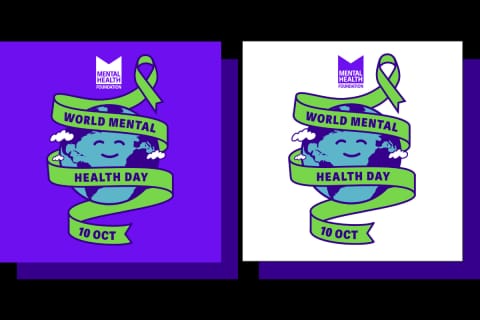Chantelle Bongubukhosi Ncube
Bulawayo – October 10 marked a significant day for Zimbabwe’s mining sector, with the Zimbabwean President officiating at the annual MineEntra, the country’s largest mining, engineering, and transport expo yesterday at the Zimbabwe International Trade Fair.
The event coincided with World Mental Health Day, a day set aside globally to raise awareness about mental health issues, often overlooked in Zimbabwe.
The coincidence of these two events has stirred concerns among mental health advocates, who feel that the attention on the business convention overshadowed a critical moment to reflect on Zimbabwe’s rising mental health crisis, especially in Bulawayo.
World Mental Health Day, observed annually on October 10, aims to highlight the importance of mental well-being and provide a platform for addressing mental health challenges worldwide. According to the World Health Organization (WHO), one in four people globally will experience a mental health condition in their lifetime.
In Zimbabwe, the numbers are equally alarming, with statistics from the Ministry of Health revealing that 1.3 million Zimbabweans are currently affected by mental health issues, exacerbated by economic hardships, unemployment, and social pressures.
Of particular concern is the rising suicide rate in Zimbabwe, a stark indicator of the country’s mental health crisis. The Zimbabwe National Statistics Agency (ZIMSTAT) reports that between January and June 2023, there was a 25% increase in suicide cases compared to the same period of 2022. Suicide is now one of the leading causes of death among young adults, with economic stress and the declining standard of living cited as significant factors.
Despite this grim reality, the MineEntra event, with its focus on business growth and economic development, seemed to push the mental health discussion into the background. The President’s speech celebrated the mining sector’s contributions to Zimbabwe’s economy, especially its role in employment creation and foreign exchange earnings. While such achievements are critical, the timing of the event left many questioning whether it was appropriate to host a major business convention on a day meant to focus on mental well-being.
Hosting a business-focused convention like MineEntra on World Mental Health Day has drawn criticism from mental health advocates.
“It’s as if the importance of mental health was completely overlooked in favor of business interests,” says Dr. Sarah Chikosi, a Bulawayo-based psychologist.
“Mental health affects productivity, yet there was no mention of how addressing these issues can improve workplace outcomes, particularly in the mining sector, where stress levels are often high.”
Research shows that workplace stress is a significant contributor to poor mental health, especially in industries like mining that are physically demanding and often involve long hours.
The WHO states that work-related stress and burnout can lead to depression, anxiety, and suicidal thoughts, all of which are prevalent among Zimbabwean workers. Ignoring mental health on such a significant day, advocates argue, sends the message that business growth is prioritized over the well-being of the workforce.
World Mental Health Day was a missed opportunity for the government and industry leaders to address Zimbabwe’s mental health crisis head-on. While the mining sector is essential to the economy, there is no denying that the country is currently facing a suicide pandemic.
The Zimbabwe Psychological Association has repeatedly called for more significant investments in mental health services and public awareness campaigns. However, mental health funding remains inadequate, with only 0.7% of the national health budget allocated to mental health services, according to a 2021 report by the Ministry of Health.
In an economy that has left many struggling to meet basic needs, mental health is often a secondary concern. Yet, ignoring these issues will only exacerbate the problem.
“Our leaders need to show that mental health is as important as economic development,” says Dr. Chikosi.
“World Mental Health Day should have been acknowledged, and mental health support integrated into discussions about workforce welfare.”
While the success of MineEntra and the mining sector is crucial for Zimbabwe’s economic future, the significance of World Mental Health Day should not be forgotten. With rising suicide rates and a nation grappling with mental health challenges, Zimbabwe’s leadership missed an important moment to unite economic development with a commitment to mental well-being. Addressing mental health is not just a social issue but an economic one—ensuring that the nation’s workers are mentally well will have long-term benefits for both the people and the country’s productivity.
As Zimbabwe moves forward, it is crucial that days like World Mental Health Day are given the attention they deserve, especially when mental health crises are so prevalent.
Zim GBC News©2024


